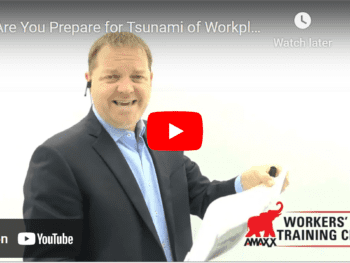The Internet Contains Unlimited Amount of Advice
You can find answers to most of your problems on the Internet these days. From general medical issues, to building things, to current events, it is all out there for public opinion and consumption.
Everyone knows that not everything you see online is the honest to God truth. But what about the reputable websites? Shouldn’t those be taken more seriously than just random Google searches about whatever topic you are researching?
The answer to that question is possibly. Recently I was looking for a plaintiff attorney I know, as I heard he had switched law firms and I wanted to say hello. While navigating through this new firm’s website, I came across a workers compensation advice area, where the firm gives some pointers on what to do if you have a workers compensation claim. I decided to take a look, and honestly the advice they were giving made me a bit uneasy. Some of the pointers they discuss were fine, and some were a little questionable in my mind.
Below is the content of the webpage, word for word. Underneath each topic, I decided to give my two cents as well. Remember, plaintiff law firms do not make money unless you take your case to them, and good firms will do anything to get you in the door. Obviously that is how they remain in business and I would say business is booming these days given the state of the economy and the overall general fear that injured workers have when dealing with an insurance carrier or TPA. Take a look for yourself and you con formulate your own opinions:
Example of Advice from Plaintiff Attorney Website:
What Should You Not Do?
Just as important as what you should do, there are a number of things you should avoid doing, including:
· Giving a recorded statement to an insurance company
Take this advice with a grain of salt. Most adjusters will have to perform a recorded statement as part of their investigation on the claim. But the reason is not to use it against you. It is more for transcription purposes. Adjusters cannot catch every single grain of detail, and to make sure they do not leave anything out they record the phone call with your permission. The tape is then transcribed and placed into the claim notes. That way, you the claimant can tell the story in your own words, without the adjuster paraphrasing or leaving out any information that could be pertinent to the compensability of the claim. Some adjusters will not complete your injury statement without recording it, and if you refuse to allow it to be recorded, they may file a dispute on the claim, and your claim will not go forward.
· Seeing an insurance company doctor before seeing one of our lawyers
This depends, you have to get treatment if you are injured, and if you have to go to the occupational clinic, these doctors do not work for the insurance company. IME doctors as well do not work for the insurance company. A lot of claimants think the occupational doctor or an IME doctor work for the carrier, and receive monetary bonuses for denying claims, and nothing could be further from the truth. So proceed with caution if you heed this advice. The longer you wait to get treatment, the less credible your injury could be perceived.
· Releasing your records
Your adjuster cannot do anything without medical records. HIPPA laws require a signed release in order for a carrier to obtain your medical chart. If you refrain from signing this release, medical records cannot be sent, and your claim will stall out.
· Signing off on your injuries without being compensated
I don’t think anyone should sign legal paperwork ending their claim unless they are comfortable with the results. A medical release is not a signed document that can end your claim, so do not confuse a medical release with a legal redemption waiver meaning you can no longer pursue your employer or the carrier for benefits.
Summary
Beware of the advice you find on the internet when it comes to insurance issues. Even from what seems like a credible website, the advice contained within sometimes does not have your best interests in mind. Do your research, and consult legal advice if that is what you feel like doing. But in the end the decision is yours, and you have to weigh the pros and cons for each decision you make in regards to your work comp claim.
Author Michael B. Stack, CPA, Director of Operations, Amaxx Risk Solutions, Inc. is an expert in employer communication systems and part of the Amaxx team helping companies reduce their workers compensation costs by 20% to 50%. He is a writer, speaker, and website publisher. www.reduceyourworkerscomp.com. Contact: mstack@reduceyourworkerscomp.com.
©2012 Amaxx Risk Solutions, Inc. All rights reserved under International Copyright Law.










